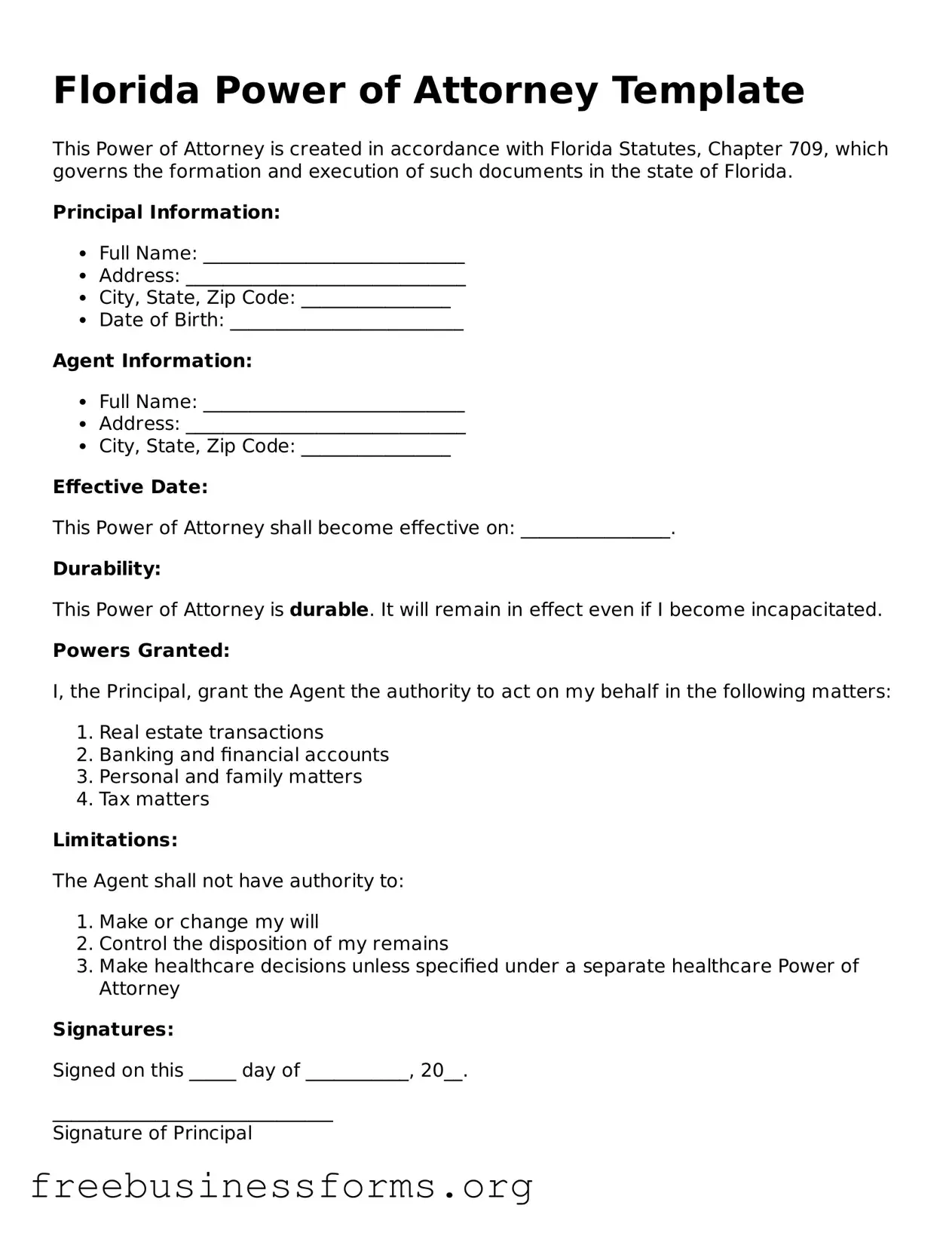Blank Power of Attorney Template for Florida
A Power of Attorney form in Florida is a legal document that allows one person to grant another person the authority to act on their behalf in various matters, such as financial decisions or healthcare choices. This form can be crucial for ensuring that your wishes are respected when you are unable to make decisions for yourself. Understanding how to properly complete and utilize this document can empower individuals to protect their interests and maintain control over their affairs.
Open Form Here

Blank Power of Attorney Template for Florida
Open Form Here

Open Form Here
or
↓ PDF File
Quickly complete this form online
Complete your Power of Attorney online quickly — edit, save, download.